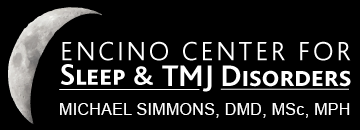Travel Worry Free
When the quality of your sleep and your health depends on a piece of medical equipment, planning a trip can seem like a daunting task. If you are taking a vacation, rest and relaxation are at the top of the to-do list. With sleep apnea, the key to getting some R&R is bringing your CPAP machine with you on your trip.
It can be intimidating to think about bringing your medical machine with you on a trip or a plane. Thankfully, Encino Center for Sleep & TMJ Disorders has put together the top 3 tips for worry-free traveling with sleep apnea.
Keep Up With Maintenance
Before you even leave your house, make sure your equipment is in tip-top shape. Clean your CPAP machine, dry it, and make sure you have any old parts replaced. Proper maintenance is essential to making sure you can breathe well during your sleep and ensure that there are no issues with your machine.
Bring Your Own Pillow
You can’t rely on hotel pillows to always give you the proper support you need when you have sleep apnea. To free your airway as best as possible, it is recommended to have your head elevated while you sleep. To guarantee you get the support you need to have a peaceful sleep, bring your pillow with you from home. This will allow you to rest while your airway gets the proper elevation at night.
Make Sure Your CPAP Is Following Airline Guidelines
Every airline has different requirements for traveling with a CPAP machine. We advise confirming with your airline what you need to do to travel on their planes. Some things you may find helpful during air travel are:
- Calling the airline’s accessibility desk and inform them if you plan to use your CPAP machine on the plane
- Transport it in a plastic bag and keep a copy of your CPAP prescription on hand to make for easier TSA passage
- Do not check your CPAP machine in with luggage. The last thing you want is for your medical equipment to be lost. Always bring your CPAP as a carry-on.
Breathe Easy In Encino, CA
At Encino Center for Sleep and TMJ Disorders, we want to make sure you’re getting the best care for your sleep apnea. If you think you may suffer from sleep apnea, please talk to your primary care physician and contact us at (818) 300-0070 or by filling out our online contact form.
